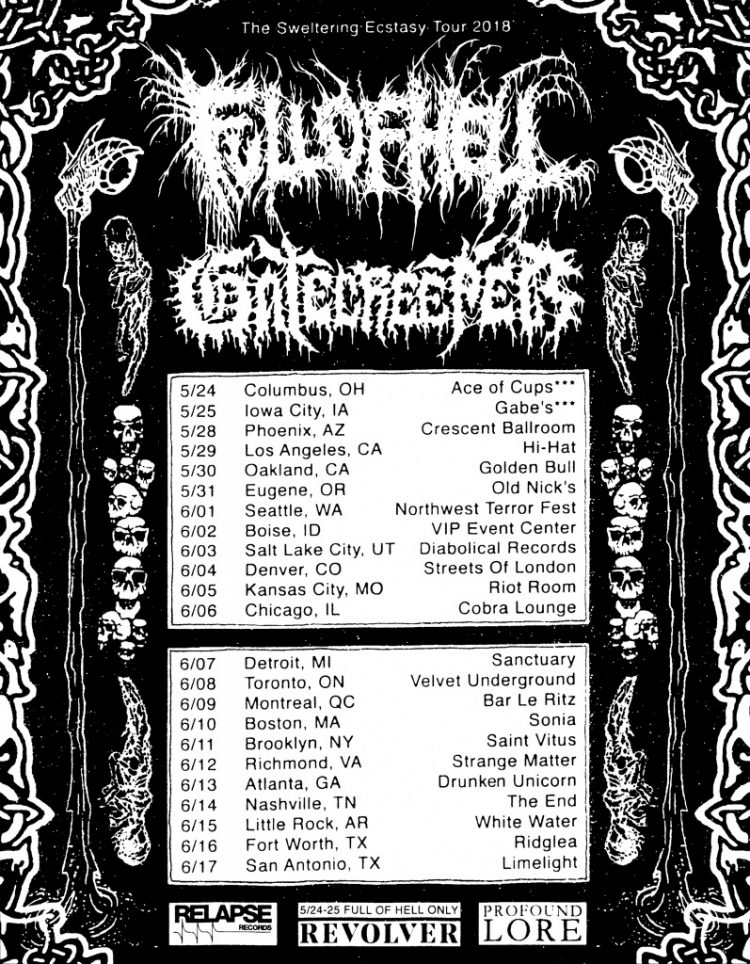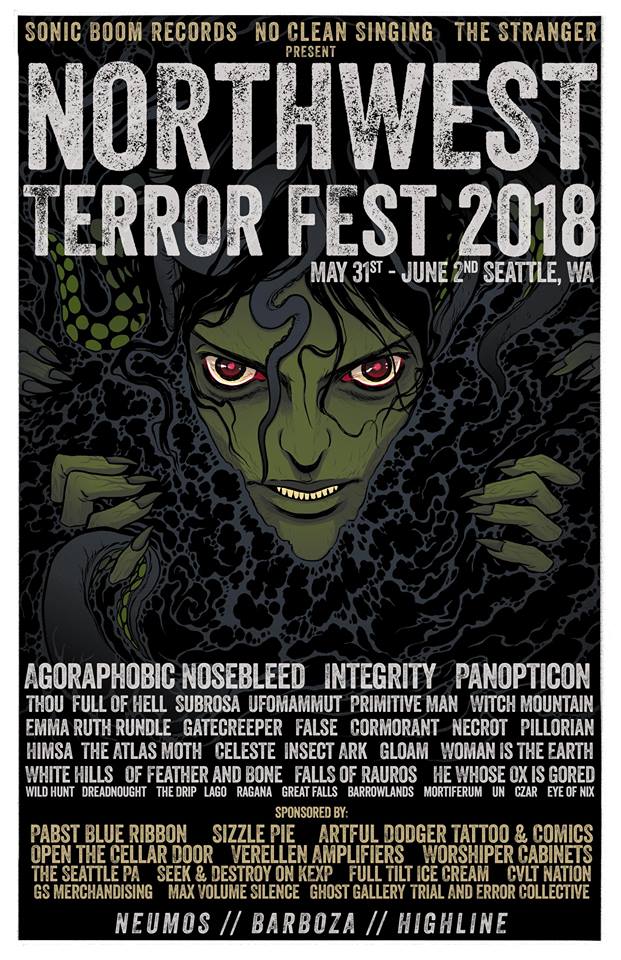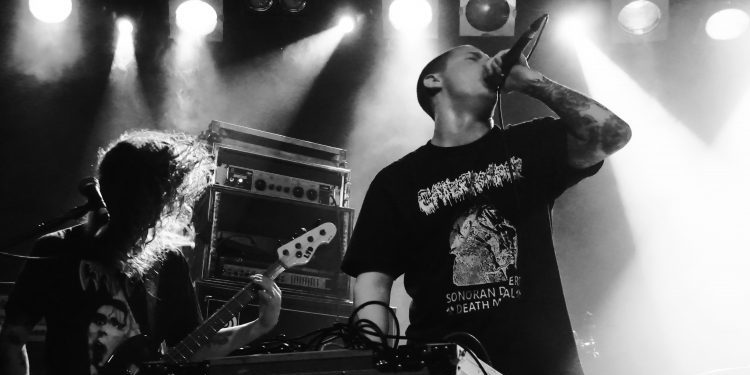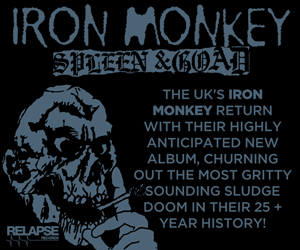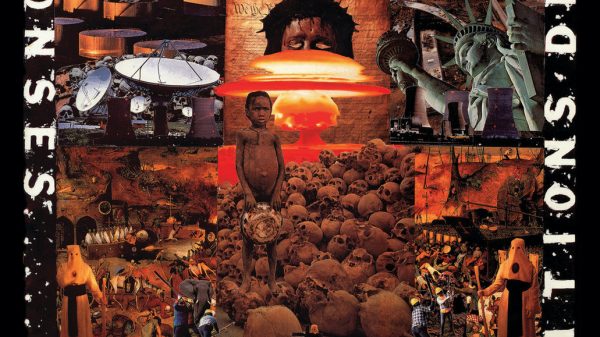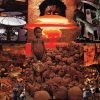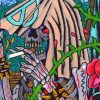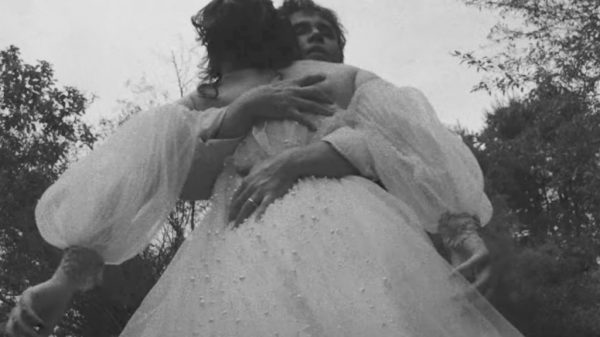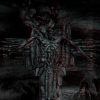In certain circles, FULL OF HELL needs no introduction. This young band has made a name for themselves in a short amount of time, racking up a prolific touring and release history while exploring a gamut of sounds within the spectrum of extreme and avante garde music. Formed in 2009, the embryonic beginnings of Full of Hell display their palette at its most primitive, d-beat and blast ridden hardcore punk with spats of noise and caustic rhythm, and within a few short years, they have bloomed into a true force to be reckoned with within the punk and metal communities.
Formed in 2009, in Ocean City, Maryland, Full of Hell have been pushing the boundaries of sonic extremity with their suffocating blend of hardcore punk, grind, noise, power electronics, industrial and death and black metal. The group already has already released six full-lengths, including collaborative albums with Japanese noise legend Merzbow and experimental doom/sludge outfit The Body. Additionally, Full of Hell has released numerous splits and EPs, including collaborations with Nails and Code Orange.The band plans to begin writing their next full-length this year.
During their European tour with Immolation, I talked with Dylan Walker and Spencer Hazard in Barcelona.
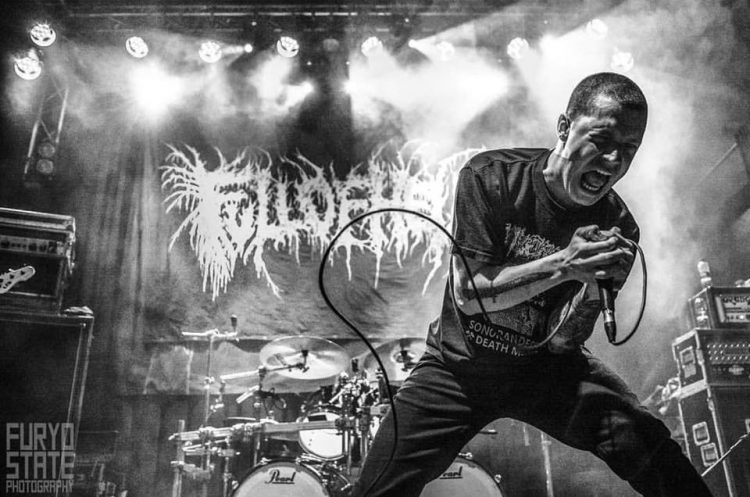
You’re touring around Europe with Immolation. How’s it going?
Dylan: Good. We had never ridden on a bus before. So it’s kind of unique. We’re usually riding in a van with our friends driving, stopping at all kinds of places and doing stuff. This way is a little different. But it’s cool. The Immolation guys are awesome.
Your live performances are always so powerful. What do you try to communicate during a show?
Dylan: Just pure sound and emotion. We want it to just be a like a wall from start to finish. It’s pretty simple. There’s nothing specific about it that we want to communicate.
Spencer: We just go up there and perform. We don’t set out to do something specific.
How important is the connection with your audience?
Dylan: It’s really important. So it’s kind of weird when there’s a big barrier, which is sometimes the case on a bigger tour. But it’s really nice when I can be amongst people. I think they can feel the emotion in the music when it’s just face-to-face as opposed to on a stage.
Spencer: On these bigger metal tours we’ve got to play harder because it’s harder to make a connection with the audience.
Dylan: There’s a big invisible wall.
What do you think it will be like tonight?
Dylan: I think it will be fine. During some of the shows there was a big, stupid barrier. Tonight, it’s pretty normal.
What does someone expect when they attend one of your shows?
Dylan: I think we’re fortunate because, at this point, people expect high energy but, beyond that, I think they know we’re just going to do what we want to do. So they’re a little more open; it doesn’t have to be just fast stuff. If we wanted to play slow stuff I think people would be receptive. But outside of maybe just high energy, they are pretty open, as far as I can tell.
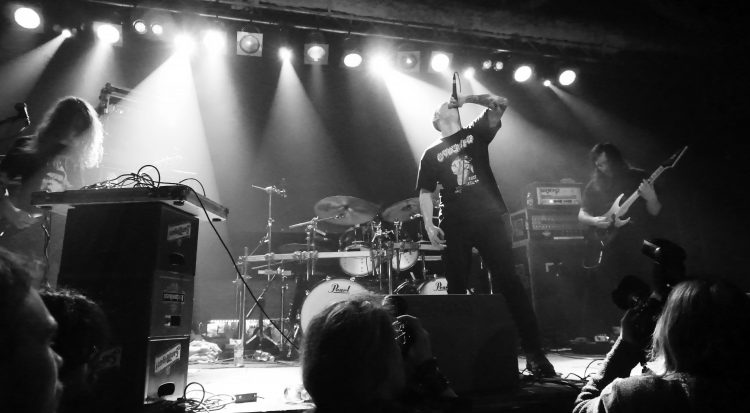
What’s your favorite aspect of being on stage with thousands of people screaming with you?
Dylan: I don’t know how much he [Spencer] actually likes that part of it.
I enjoy seeing what we created on records translated live and the moment of the fever pitch when everybody is so excited along with you, and you just kind of bounce off each other. It feels really angry but it also feels really static and joyous.
How is it sharing the stage with Immolation, the founding fathers of New York death metal together with other bands such as Suffocation, Incantation and Mortician?
Spencer: I guess it’s kind of intimidating because they’re legends and in tours like this we’re playing to a whole different audience who has no idea who we are. It’s a task. Like I said earlier, we have to play as hard as we can because it’s a new experience. But it’s cool being out with such legends.
Dylan: And they’re really awesome guys. They kind of started out just like we did. They have no ego. They’re just there, loving what they do. They’ve been doing it for so long. They have so many crazy stories. And they totally get it. There’s like a divide of age of 20 years, but it doesn’t feel like there’s an age divide. We met these guys last year and it was just like, “Holy shit, we’re on the same wave length.” It’s inspiring, because these dudes, they’re into punk, they’re into metal. And when they started their band, all they wanted to do was create something of their own that was like dark and intense. It’s just crazy talking to someone from another generation of music and really relating on a ground level. And that’s how it feels with Immolation. It’s very, very fucking cool.
Talking about legendary metal bands, what’s your musical background?
Spencer: I guess basically all of us just started out getting into punk and hardcore stuff and as the years progressed, especially with Full of Hell, we’ve just taken more experimental and metal influences and molded it. I feel we all come from a kind of similar background.
Dylan: At least with my parents, they gave me a bunch of punk CDs, which kind of started me off. You know, Misfits and Bad Brains. He [Spencer] loves the Ramones and I love the Ramones. He’s a huge Misfits fan. And I know we both had eye-opening moments. I always cite early Relapse and Hydra Head records as being hugely formative for finding noise as a whole genre and being exposed to the more experimental side of death metal. Yeah, I feel like it’s pretty organic.
[youtube id=”TFRoX3vIgew”]
If you could choose an artist or a band, dead or alive, to share the stage with, who would it be and why?
Spencer: I would love to tour or play with Godflesh.
Dylan: Godflesh is definitely on the high end of the list for me too. I know Napalm Death and Carcass are up there with bands we really want to play with. I don’t know if it would make sense but we would really like to open for Swans.
Spencer: Or Neurosis.
Dylan: Neurosis, especially. I love those guys.
I talked with Scott Kelly in Berlin two months ago. It was super inspiring…
Dylan: Yeah those guys are amazing. That’s another band with just DIY guys. They’ve been doing it since they were kids and they never fucking compromised and they kept it at their own speed and their own style. And did exactly what they wanted and now they’re just walking legends. It’s awesome.
You guys, as a band, have made a name for yourselves in a short amount of time, racking up prolific touring and release history. But I would like to ask you what was the reason why you started Full Of Hell in the first place?
Spencer: I guess technically, I’m the only original member. I was just in regular hardcore bands but all of our old hardcore bands broke up and we just wanted to do something different. Something sludgier. So initially when we started, we were more influenced by Crowbar and Eyehategod and stuff like that. And as the years went on we just wanted to push the envelope more and more and, like I said, take different influences from grind and experimental and death metal.
Dylan: But you started the band because that was our dream: to go on tour and just release music. That was the only thing that made sense. I mean, when I joined my first band when I was like 12, it kind of ruined all other hobbies for me. I’m sure it was the same way for him. That’s all we really wanted to do, so at the first chance to drop out of college or whatever, of course we were just going to go for it. And there was definitely failure, failure, failure. But it wasn’t really about a specific kind of success. It was just something we thought we had to do. So we just went on tour with no contacts and made it work.
Spencer: Yeah, that’s why it’s kind of hard to describe why I started the band. I just started it because I wanted to start it.
Why did you start playing grindcore and not another genre?
Spencer: We don’t consider ourselves a grindcore band. We just say we’re a hardcore band.
Dylan: We get the grindcore tag slapped on us though. And I know it pisses people off.
Spencer: We just took influence from those bands. We grew up listening to shit like Insect Warfare and Endless Blockade and stuff like that.
Dylan: Also, the more extreme the better. I always had a really terrible attention span so it was hard for me to listen to long form music anyway. It’s not that case any more, but I felt like there wasn’t much to be said for extreme music unless it was a fast as fucking possible or as slow as fucking possible or as harsh as possible. So when I heard Discordance Axis, that was one of the first ones I heard, it was fucking perfect. Because all the songs were like a minute and half long or a minute long and the blast beat was just, you know, the end point of tempo for me. I prefer it to be as extreme as possible.
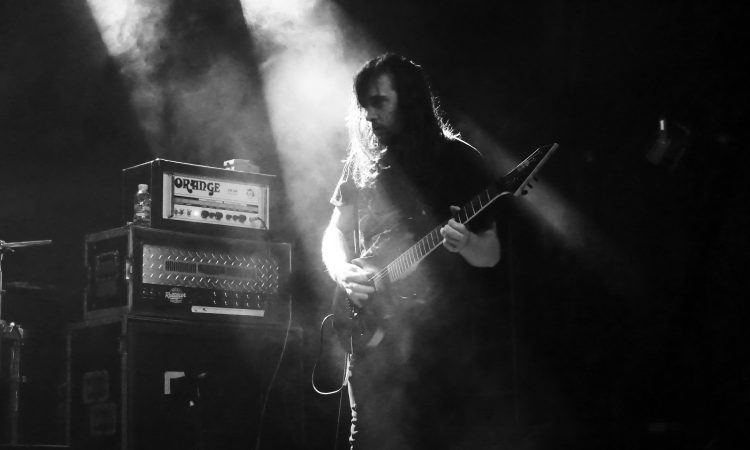
And you are from Ocean City, Maryland, right?
Spencer: Yes.
Did that have any direct influence on you as a band?
Spencer: Not really. Because we’re like the only metal band to ever come from there, kind of. So we didn’t get influenced by older people. I guess we’re lucky because we came from the age of YouTube and Myspace and just discovered new stuff and were like, “Hey, let’s just do something like that,” you know?
Dylan: Their musical culture came from outside of that peninsula, not on it. And I grew up in central Pennsylvania and I did have some older kids that definitely opened my eyes to shit a little quicker, but without the Internet, I don’t know… I would consider us rural. You know, they live in a tourist town but it’s kind of in the sticks. And I’ve always lived in the middle of the country. I think without the Internet that wouldn’t have been possible.
Your last album, Trumpeting Ecstasy, is your third and in my opinion your best solo album. Do you feel changed since this record? Maybe more mature?
Spencer: I guess with that one we just got better at song writing, I think. Like more matured song writing. With Rudiments and Roots, we’re proud of that, but it’s sporadic and all over the place. WithTrumpetingwe were able to put all of our influences and make it not seem like part after part. We were able to make it blend a lot easier.
Dylan: I’ve always been very self-conscious. Trumpetingwas the first time where I felt a little bit of confidence. I felt really good about it. We’ve done a bunch of records and we’ve made some mistakes and we’ve made some successes and we’ve found what we like. And this time when we were going into it, finally my skin was a little thicker too. I didn’t really care if somebody said some shit about it. I was just really proud of what we had accomplished. So it definitely made a big difference because we went it into really confidently and, like he said, the songwriting had come along. And it went well. In the wake of that, there’s definitely pressure to write another one at least at that level or better. But I’m also feeling confident in what I know we can do as a group.
You have joint EPs with the avant-garde elitesuch as Merzbow and The Body. Why the choice to blend to hardcore or grindcore with this new kind of heavy musical approach?
Spencer: Looking up to bands like Neurosis, Godflesh and Swans, just because we didn’t want to pigeonhole ourselves, I think, or put ourselves in a box. I know we kind of are by saying we’re a hardcore band. But I don’t want to be set doing one type of music. I want to expand my horizons under the umbrella Full of Hell.
Dylan: Also, it definitely needs to be said that I don’t think it was even in our plan to collaborate in the beginning. We met this dude, Balász Pándi. He’s the live drummer with Masami, and he suggested it. And that had never occurred to us before. So then we were thrust into this thing, doing a record with Masami Akita, which was a huge amount of pressure and was very stressful. But it was such a new thing for us to improvise and kind of get out of our comfort zone. When we played live with him, he only improvises nowadays. That kind of helped us grow within our comfort zone with noise and stuff because so much of nose relies on the world of free jazz in the improvisational style, so working with someone like Merzbow was a huge growth for us. And then, we just became friends with the Body. I was just a super fan, and now we all are. Lee and Chip stand by the idea that you collaborate on the basis of friendship. They didn’t even care. They just wanted to collaborate because they liked us.
Spencer: Collaborating with the Body isn’t some huge artistic thing. It’s basically us hanging out, eating pizza, watching TV and then being like, “Oh I got a riff idea.” And then we go into the recording room and record it.
Dylan: Yeah, over the course of a month, there will be very small periods of time when Lee and Chip and us will be sitting around like, “What if we did something like this.” And Lee and Chip would be like, “Oh yeah that would be cool.” And that’s it. When we hit the studio, Machines of Magnets (which is a genius studio), that’s just when all the magic happens, I guess, if it’s magic. Collaboration is an exciting thing. I don’t think we ever expected to be part of what we’re doing.
[youtube id=”l8cRs9rGWYE”]
You also released records with Nails, Code Orange Kids and Psywarfare. What do you think about the contemporary metal music scene?
Spencer: We love all the stuff coming from Colorado like Blood Incantation and Spectral Voice. We feel like there’s a resurgence of truly younger bands taking the punk influences of old school bands like Immolation or Incantation and putting it as a death metal band. Like I said, those two bands and then Tomb Mold from Canada and stuff like that.
Dylan: It’s a great time in contemporary metal –maybe not just metal, but in contemporary extreme music. I feel like anybody complaining about it is just not looking. There is just a sea. I’m always missing things, no matter what direction you’re into. There’s a revival of this, there’s a revival of that. A pushing forward of this. That Denver scene and Toronto scene – there’s such a resurgence of zero ego, punk-ethic backed extreme music and it’s fucking awesome. I think it’s extremely exciting. And the media in general, music, art and films: it’s all awesome right now.
I know that a few months ago you signed with Relapse Records. How did you end up with Relapse?
Dylan: Well they just hit us up. And we had just put out Trumpeting Ecstasy and we really weren’t sure about moving or anything so we kind of just sat on it for a while and thought about it and talked to those guys. They seemed really nice. And the nature of our relationships seems like it’s going to be pretty positive and easygoing. For us it seems like a cool opportunity to maybe have a bigger voice for our music.
Spencer: Yeah, because everything that we’ve always been on regarding labels has always been a DIY basis, like Profound Lore, A389. So we were just like let’s try working with a more industry based label. See what it’s like kind of thing.
Dylan: And if we did something like that, I don’t think there’s another label that would be better to work with than Relapse, because of Relapse’s history and our world. I think they really understand where we’re coming from. The thing that makes me nervous about big labels is the idea that a label thinks that they could put their hands on what you’re creating, on your craft. And maybe change anything about it. Some bands don’t give a fuck, but I would rather just not make music than make music that has someone fucking remolding it at the end. Relapse has no interest in doing that and they just want to put out your art or whatever. And that’s all we really want.
Spencer: We also have a ton of friends on Relapse. Exactly. So it’s a nice home.
How do you feel about being part of a music label that works with so many legendary bands?
Dylan: It’s cool. We don’t really think about it too often. I remember thinking that there’s just repeated moments like that. When we put out a record with Neurot Recording I was asking myself, “How does it feel? You’re on Neurosis’ label.” Or “You’re working with the Body, this band your such friends with.” I don’t know. It’s all relative. It doesn’t mean anything. It’s a cool thing. It’s a privilege and that’s about it.
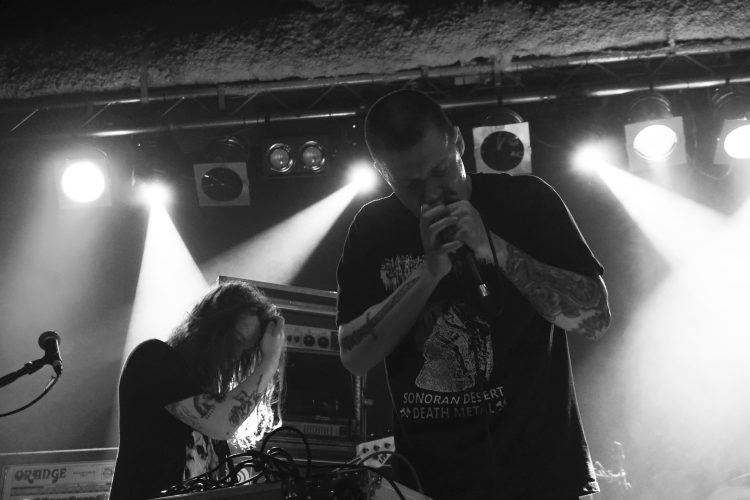
I read that you’re planning a new album. Have you written something yet?
Spencer: Yeah, we have six songs already. But I want to take my time with it, just because usually we’ll write a record in a couple of months and sit on it. With this one I want to refine the songs, practice them, just so that when we get into the studio it will be easy.
So you already have an idea about what it’s going to be like?
Dylan: I think we had a vague concept even before we started writing, about where we hoped it would go. But now with him writing all these songs, it’s definitely starting to come together.
Do you think that the new record will be the same Full of Hell style or something new?
Dylan: The core vibe, I think, remains the same. But it’s definitely a progression.
Spencer: Yeah, I feel that the new stuff we’re writing is kind of like taking bits of everything we’ve done as a band thus far. Even with Trumpeting, I love that record obviously, but there’s still stuff that I would change. There’s stuff that I would change about every record, but I feel like with these new songs we’re taking the best bits of our history and combining it into one album.
So can you tell us more about the new songs?
Spencer: I guess they’re more technical, but still have a more hardcore, punk vibe, like elements from Rudiment sand stuff like that.
Dylan: Yeah, I think Trumpeting Ecstasy kind of felt to me like our first record. That was actually setting the table for what we’ll be. So this one definitely feels like all the best parts of what I felt was best about Trumpeting but with even more efficiency. And I think the tempo dynamics are better so far on this record too, because I really like when we get into a slower territory. You know, mid-tempo to slow stuff and not just blasting the whole way through. Not that Trumpetingwas just blasting the whole way through, but this one seems like it will be a little more varied in tempo. I think we’re just going to expand on special ideas we maybe stumbled on in Trumpeting, like the drum machine stuff. We’re going to take it a step further.
Remaining Full of Hell Tour Dates:
06.04.2018 London (The Dome) GB
07.04.2018 Haarlem (Patronaat) NL
08.04.2018 Kassel (K19) DE
